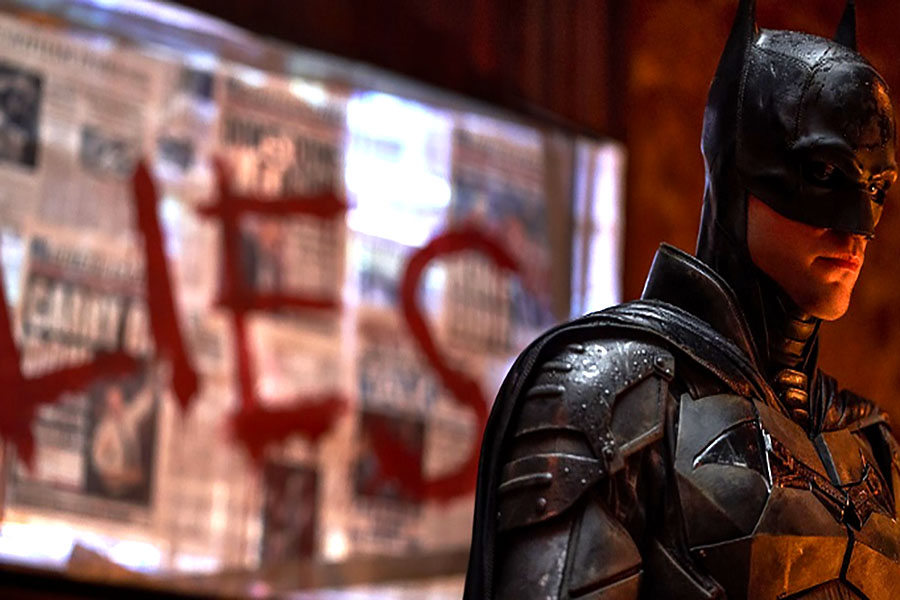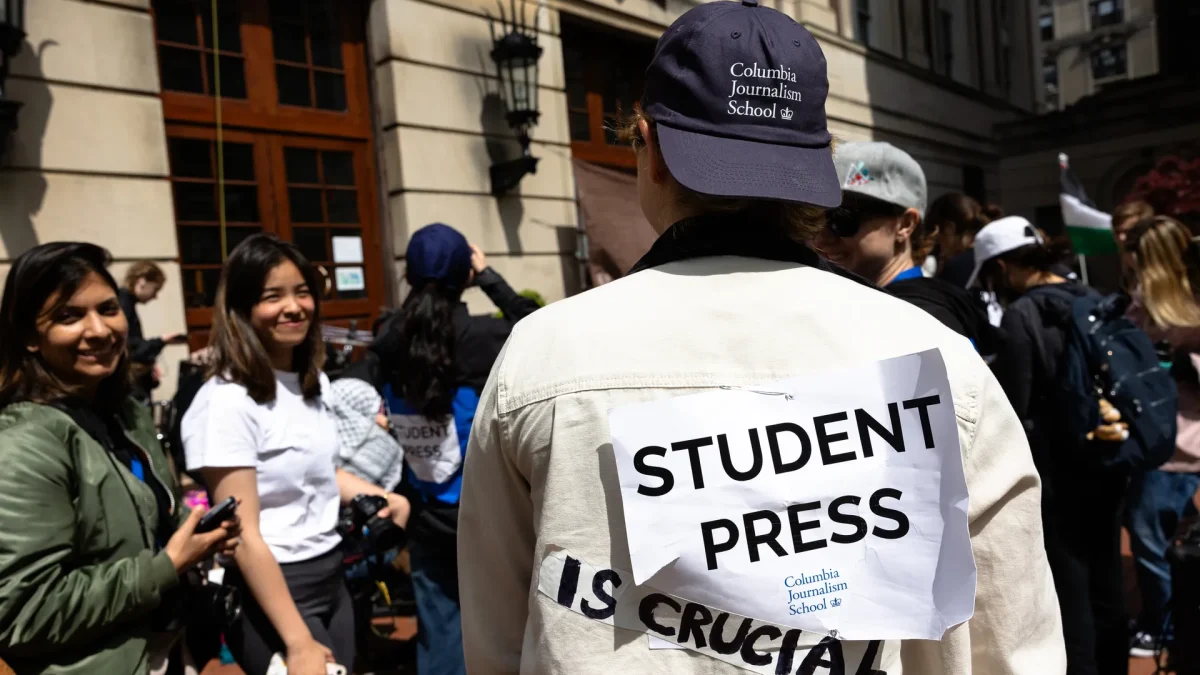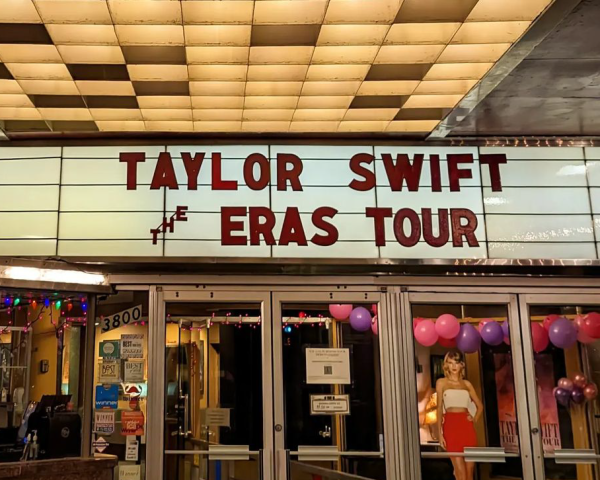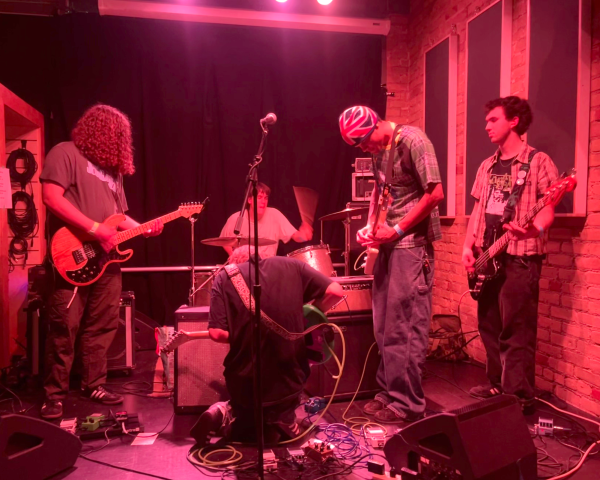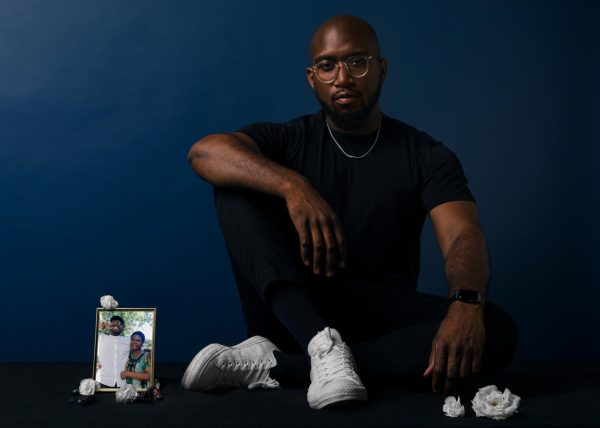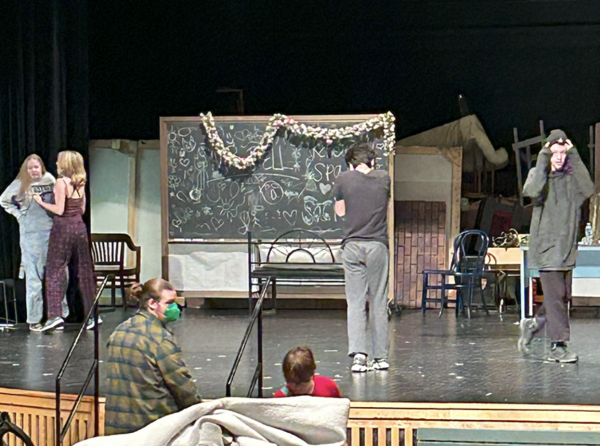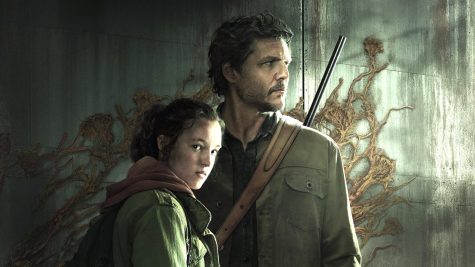Superheroes and Status Quos: the politics of The Batman
The latest version of Batman attempts to modernize the “politics” of the character, but ends up falling into status quos.
May 9, 2022
Batman is one of the most iconic superheroes ever. Debuting in 1939, the character has seen countless different iterations and interpretations. From Adam West’s near parody in the 60’s to Christopher Nolan’s ultra serious Dark Knight trilogy, this character has seen it all. The latest installment, aptly titled The Batman, mostly pulls back from the huge setpieces of The Dark Knight Rises and Batman v. Superman, and attempts to tell a more personal and intimate story of Bruce Wayne (Robert Pattinson) and his crime fighting journey. Along with every new iteration comes along a new debate of the “politics” of Batman, a character that has never had “good politics.” We’ve all heard the same things, how he’s ultimately a billionaire beating people up in the name of solving crime, who does nothing with his billions to actually help people, but sometimes it’s okay to just enjoy that. Issues arrive when the series tries to “modernize” the politics of the franchise by making it a much bigger part of the plot. The end result is kind of a politically confused mess, ending up in the same place it started at. Spoilers follow.
Two years into his job as Batman, a new threat has appeared in Gotham, in the form of the mysterious Riddler. Batman works with Commissioner Gordon (Jeffrey Wright) and the elusive Catwoman (Zoe Kravitz) to uncover the Riddler’s scheme. Over the course of the film, they find out that the Riddler is killing off corrupt individuals involved within every institution in Gotham. Closely tied to this corruption is Carmine Falcone’s mob, which has a widespread drug trade. For much of the run time, the film attempts to examine how the system is fundamentally broken and has directly caused the state Gotham is in today. The film fully acknowledges the corruption of every institution in the city, to the point of showing people protesting the terrible conditions. Yet the movie chickens out when it absolves the system and Batman from any wrongdoings.
Near the end of the movie, it is revealed that Bruce’s father, Thomas Wayne, had started the “renewal fund” before his untimely death. It was meant to be a way to do charitable work without going through all the typical “bureaucracy.” After his death, the fund turns into a way for every crime lord/corrupt politician to launder money. Furthermore, it’s also revealed that Thomas had hired someone to kill a journalist that was threatening his mayoral campaign. But of course the patriarchal father figure can’t be part of the problem, and the truth, as revealed by Alfred, is that he was only trying to protect his wife. In the end it leaves the guilt somewhat ambiguous, but there is way too much absolving of otherwise interesting conflicts. Commissioner Gordon is admittedly one of the best parts of the movie and plays the role of the one good cop who puts his trust in Batman. That is until Batman exposes the corruption and half of the police force is revealed to be, surprise, actually heroic. If you’re going to take the Batman mythos seriously, your conclusion shouldn’t be “there are some good billionaires and some good cops too.” Included in the film is the mayoral candidate Bella Reál (a poor amalgamation of every somewhat left-leaning politician in America), who advocates for “Reál change,” yet ends the film saying that Gotham needs to restore people’s faith in institutions, a far cry from actual change. While not completely ridiculed by the film, she’s an idealist who recklessly runs into danger and has to be saved by Gordon. It’s hard to believe this isn’t an intentional portrayal and dismissal of the idea of fundamentally changing the system.
The climax of the movie has the Riddler blowing up the sea walls around Gotham, causing it to flood, presumably killing millions of people which are conveniently not mentioned. This is kind of a crazy change of the character, who up until now was only killing corrupt politicians and cops. The movie kind of posits the ultimate evil in Gotham being mentally ill people (Riddler is an orphan with other ambiguous underlying conditions) and not the institutions that caused this to happen in the first place. This isn’t a new phenomenon in blockbuster storytelling or comic book movies, but especially rears its ugly head in a movie that tries to be more topical and “modern.”
Ultimately, it’s silly to debate the “politics” of Batman, but when the new installment tries to position itself as political, it ends up failing. The Batman is an ultimately fun and enjoyable, if too long, addition to the Batman saga. It isn’t scared to lean into the goofiness of the character without sacrificing the seriousness of the plot. The problems come when it wants to desperately be about something more when it only ever lands on the status quo.

